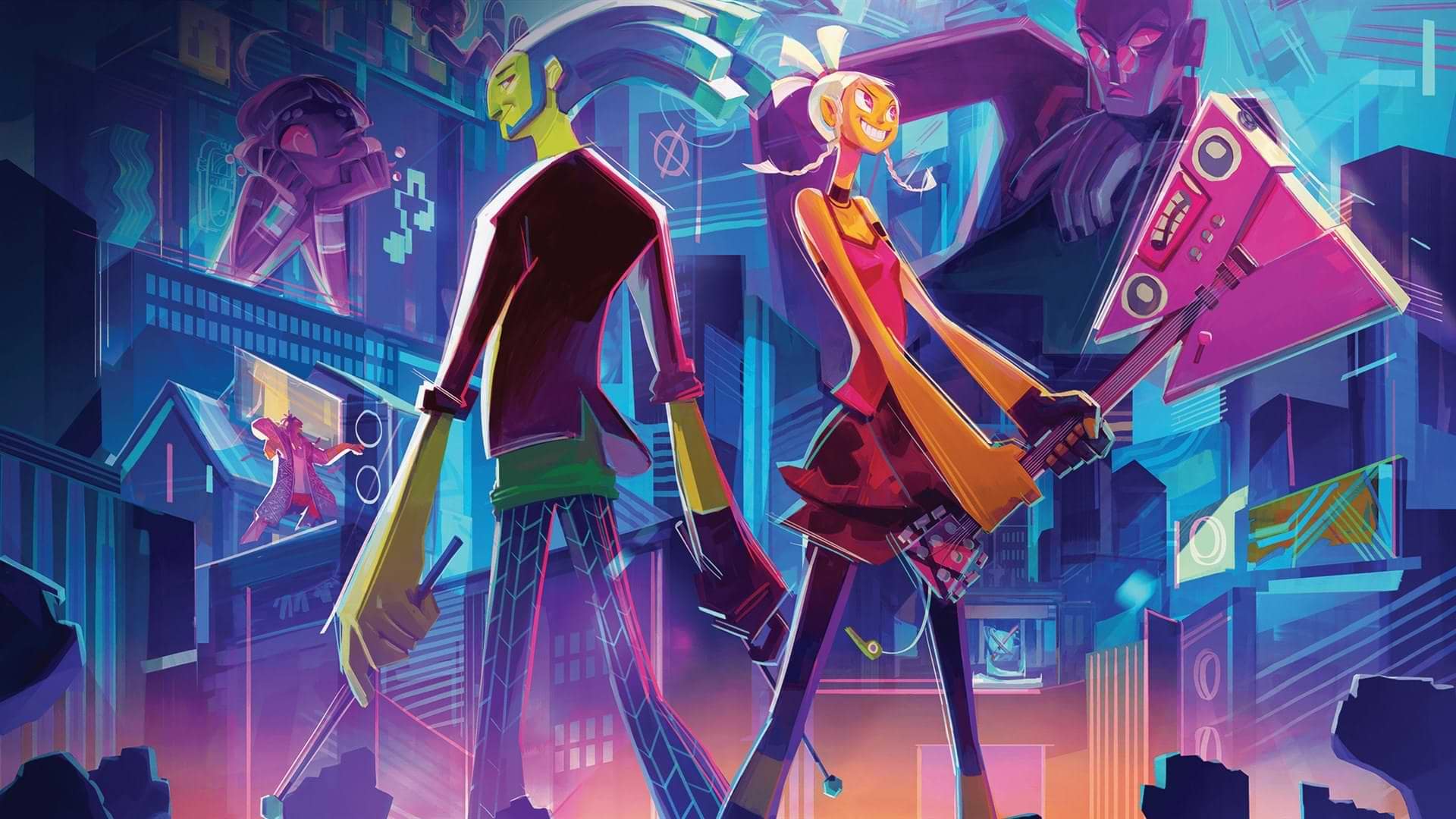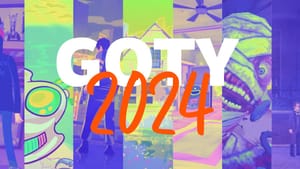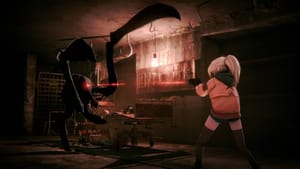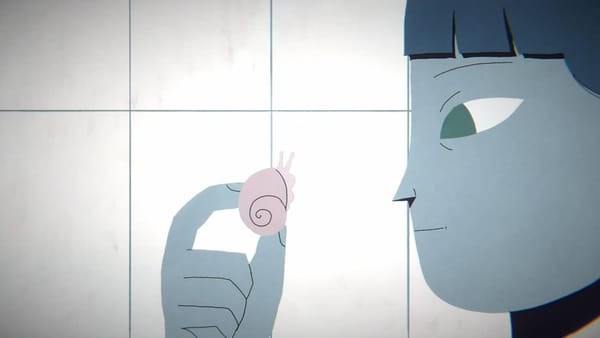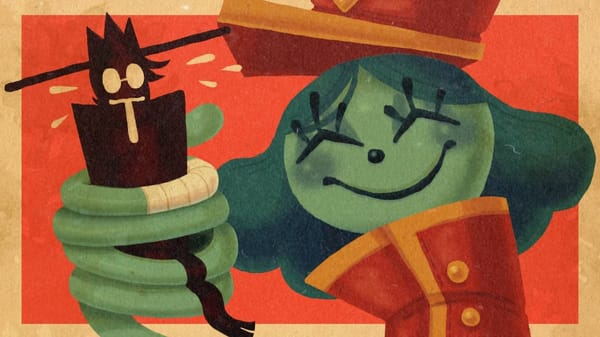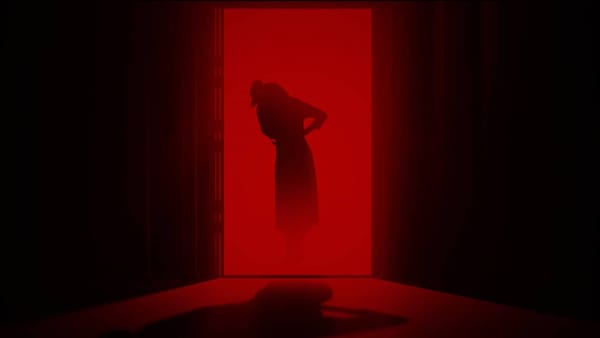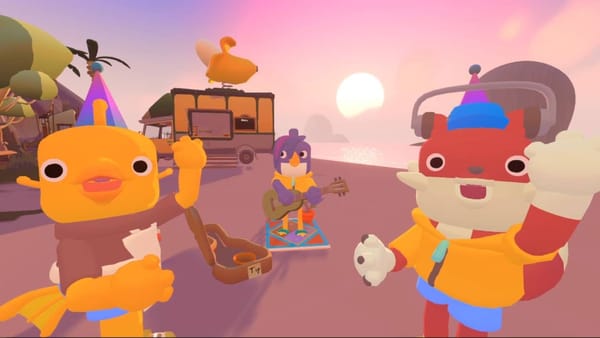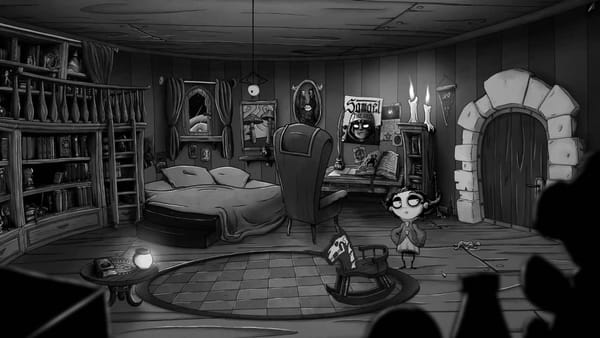This No Straight Roads review took its time to materialise, but buying the game took a backseat when there’s so much to get through. It’s the same as Ghost of Tsushima and The Last of Us Part II; they’re on the list, but they’re for me, so I’m not in a hurry.
Besides, after avoiding spoilers on social media for months, my non-gaming best friend accidentally ruined the story side for me. A bit like a co-worker telling me of a death in Sons of Anarchy. That was four years ago, and I still haven’t returned to the series. Hold on, we’re reviewing a game here aren’t we? This waffle might give a hint about whether the game held my attention or not.
Billed as a spiritual successor to Jet Set Radio (by me), there was a lot of eggs going into the No Straight Roads basket. That might have been the downfall, or was it a pleasant surprise and the game we (I) have been waiting for?
No Straight Roads Review – Nintendo Switch
Music is a crucial component to this game, and watching the early trailers solidified the potency that this soundtrack has – it’s incredible. But ignoring how good the music is, it plays a pivotal role in the game as well as the story. The protagonists, Mayday and Zuke (nice names, not) enter a talent show with their blend of rock music, only to find out it’s not to the requirements of the judges, music label NSR and they are exclusively focused on EDM. I thought Eagles of Death Metal were rock? Oh, wait: EODM.
The duo promptly surmises that there’s a bit of corruption involved and the dismissive judges taste in music is influenced by power: they’re using EDM as a way to control the city. Vinyl City. Cue our heroes as they fight to get the power of rock out into the ether. How do they do this? By gatecrashing other artists’ gigs and battling it out as if paying homage to Scott Pilgrim Vs The World, minus the exes.

Vinyl City doesn’t mirror the electricity of the musical beats in No Straight Roads and is a little on the sparse side with not much to do other than light up the way by picking up collectables. Combat is equally sparse with simple attacks, more advanced options unlocking with progress, but it’s not all that exciting until you reach the boss battles.
The boss battles are pretty epic set pieces and the way the music fuses with the gameplay is initially very good. Still, awkward camera angles and a slight feeling of disconnectedness between the characters and the boss in question dampen the experience, which is a shame, as the presentation didn’t disappoint. Both Mayday and Zuke, forming the band Bunk Bed Junction, look the part and the dialogue is mostly good. Still, they aren’t particularly memorable – mostly due to the monotony that combat sometimes provides.
Orchestrated Soundscapes
As a rock fan, it wasn’t hard for me to side with Bunk Bed Junction, but they were a little on the irritating side at times. Despite my rock bias, I do like EDM, but the enemies in the game have a very manufactured aesthetic that hits every stereotype, and let’s be honest, some stereotypes are pretty accurate – especially when it comes to manufactured pop groups. I picked up a whiff of Miku Hatsune and BTS in the boss lineup, and to be fair; these bosses do replicate their counterparts pretty darn well, as does the consistently excellent score. Did I mention the music?
No Straight Roads, from Metronomik and Sold Out, does mix up the combat with the odd rhythm section, and while you can make mistakes, it’s in your interest to get it right as it helps with the fights. However, it just seems to be let down mostly by the monotonous combat between boss sections and the parading through Vinyl City lighting it up and earning the fans you need to unlock new moves.
Still, No Straight Roads is excellent to look at and can be played as a solo player or two-player. You only have a choice of the two characters; Mayday being the hard-hitter, Zuke, the combo expert. Perhaps the experience is best with another player to either embrace the vibrant aesthetics or complain about the awkward camera angles.

Other incentives in the game, outside of the boss modes, would be kitting out your base with stickers and playing as/with the pair’s pet alligator. Set in the sewers, you eventually have access to a radio station and can play some arcade mini-games. It’s all bonus stuff, but it adds to the overall feel of the game, which certainly has its moment. However, No Straight Roads greatest selling point is the boss battles – the bits in-between are more filler and eye candy (which it does well), but if you’re looking for a bit more substance and a title that fills the void that Jet Set Radio, maybe wait until Bomb Rush Cyberfunk.
Granted, No Straight Roads wasn’t pitched as a Jet Set Radio successor and was my assessment based on the music and presentation. Ignoring the comparison, the game is up there in terms of visuals and the soundtrack, but maybe would have been better served as an exclusive boss rush, perhaps like Bossgard.
It’s certainly not a bad game, but with the occasional dodgy camera controls, repetitive beat ’em up elements and the odd annoying voice acting, this was perhaps one of those moments where it would have been better to go in without any expectations and be pleasantly surprised rather than disappointed.


